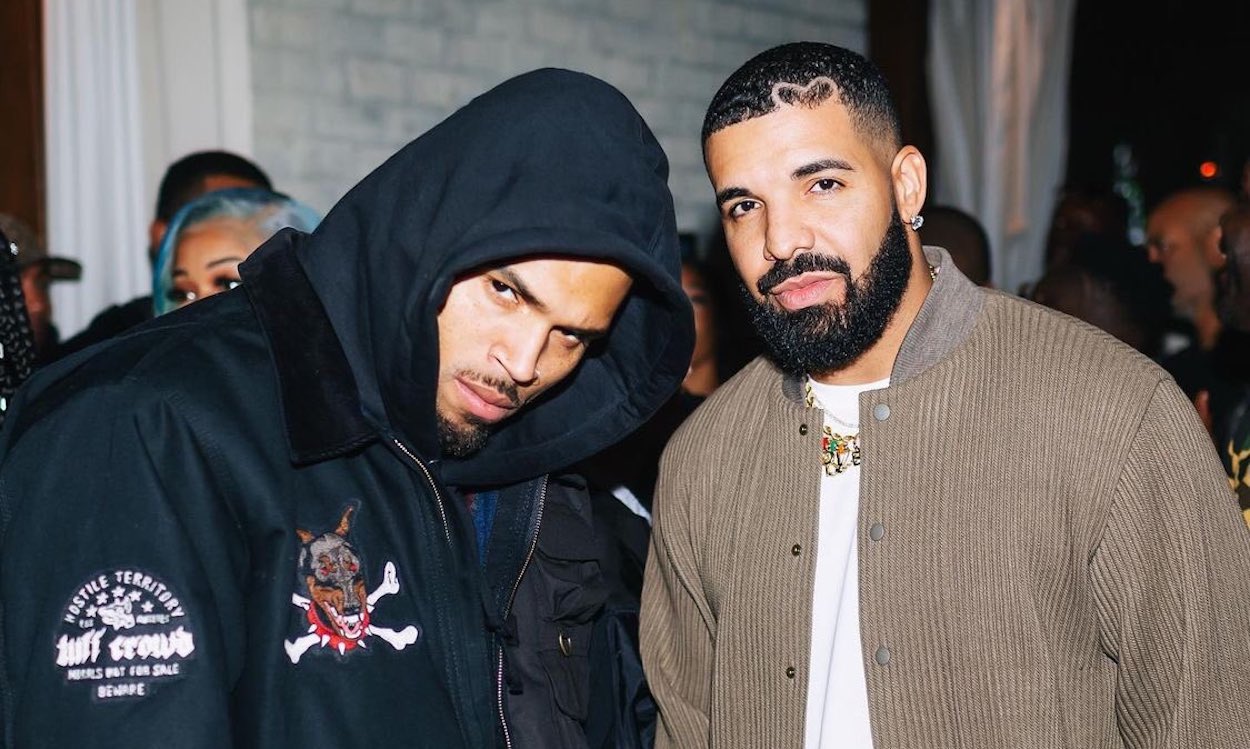The Toronto rapper has been removed from the copyright lawsuit claiming that he and Chris Brown stole the key parts of another song to create the hit “No Guidance.”
In a claim filed in October 2021, songwriters Brandon Cooper and Timothy Valentine accused Brown and Drake of stealing their 2016 track “I Love Your Dress” on “No Guidance” featured Drake.
However, on Tuesday, the plaintiffs in the case dropped Drake as a respondent to the lawsuit but are going forward against Brown. Drake was voluntarily dropped, and it’s unclear whether there was a settlement or some other decision in the background influencing the move.
According to Complex, Cooper and Valentine’s lawsuit still has Brown and Sony Music Entertainment as respondents.
“No Guidance,” which was released on June 8, 2019, has been a commercial success, peaking at No. 5 on the Billboard Hot 100.
Cooper and Valentine have claimed that the artists blatantly stole key parts of their song. They said that “No Guidance” was copied or derived from “the beat, lyrics, hook, rhythmic structure, metrical placement, and narrative context” of their song “I Love Your Dress.”
They also claimed that the superstars also had the upper hand as they are more famous.
“This argument – essentially that defendants are somehow immune from copyright infringement claims by individuals who are not as famous as they are – is both egotistical and without any legal basis whatsoever,” the two said in February. “Undoubtedly, regardless of their fame and status, defendants may be, and should be, held accountable for their infringement.”
In January, both Drake and Chris Brown called the lawsuit frivolous and baseless.
The plaintiffs claimed that the two superstars stole the main element of their song, which was the hook “you got it”.
The lawyer James Sammataro who represents Drake and Brown, rejected the claim stating that the duo wanted a phrase common in music and that the songs bore no similarity.
“Plaintiffs’ suit is premised upon the alleged similarity [to a] wholly generic lyrical phrase,” Sammataro said in response to the plaintiffs. “No one, including plaintiffs, can own or monopolize the non-copyrightable phrase ‘you got it,’ and it should come as no surprise that this phrase appears in countless other works,” the filing by Sammataro said.
